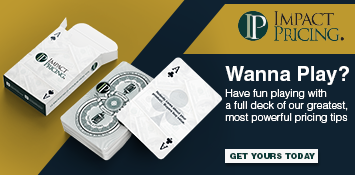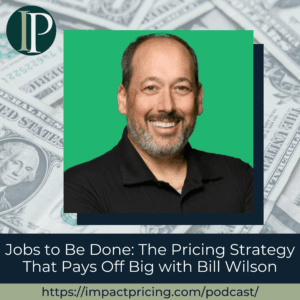This one is the 9 of Clubs from the Selling Value card deck.
Let’s start with, what is a relationship journey? Buyers who are on a relationship value journey realize they have a problem and then they go straight to a salesperson to learn. They didn’t spend a whole bunch of time on the internet researching options or alternatives. They’re the type of people who would rather learn from someone else, who would rather get the feedback.
Let’s say your refrigerator just broke down, and your friend says to you, “Hey, you got to go talk to Bob at the appliance store, Bob will help you out.” And you walk in and start to talk to Bob. Now, what is Bob’s job? Bob should be focused on, how is buying a new refrigerator going to be better for your life? Which style of refrigerator is going to be better for your life? They’re truly focusing on the problem that you have and what’s the best solution to your problem. They’re not focused on saying, here’s why my store is better than someone else’s store, they’re just focused on your problem.
Podcast: Play in new window | Download
“When someone gets recommended to you or someone comes to you and they’re not looking at competitive alternatives, talk about the value of solving the problem. Don’t talk about competition.”
– Mark Stiving
If you’re in B2B sales, when you find someone who has been recommended to you, your job isn’t to sell your product relative to a competitor. It’s to sell, here’s why solving that problem is so valuable to you.
Now, the relationship journey implies that they’re going to go on and talk to some of your competitors. The key though is when you have the chance to build the relationship to help your buyer understand the ROI, you’ve got this strong advantage because (a) they like you, (b) your competitor is probably not helping them with the ROI analysis, and you’ve demonstrated that you truly understand your buyer’s problems.
So, absolutely, when someone gets recommended to you or someone comes to you and they’re not looking at competitive alternatives, talk about the value of solving the problem. Don’t talk about competition.
We hope you enjoyed this example of Pricing Table Topics. What you just heard was done without a script. If you want to get better at speaking about pricing and value, grab a deck of our cards, pick a card, read the saying, then talk for one to two minutes about what that card says. You’ll become a better speaker and expert.
If you have any questions or feedback, please email me, [email protected].
Now, go make an impact.
Connect with Mark Stiving:
- Email: [email protected]
- LinkedIn: https://www.linkedin.com/in/stiving/
















